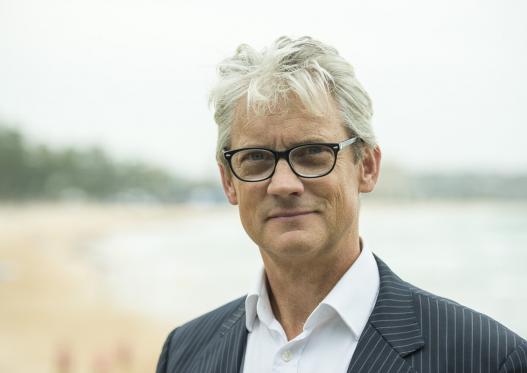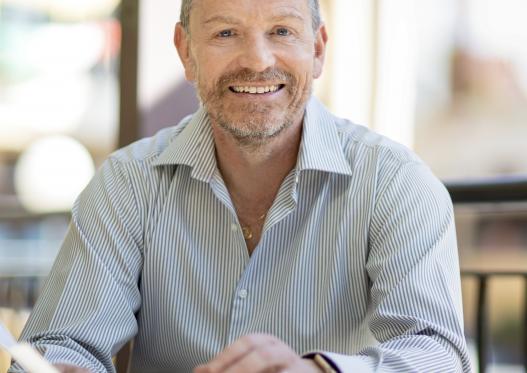A growing appetite for green bonds will continue in the wake of COVID-19, according to NAB’s Global Head of Sustainable Finance.
David Jenkins F FIN - who will be speaking at the FINSIA-backed Ethical Finance 2020 summit - shared his thoughts on the continued interest in sustainable investing, especially as a way of driving an economic recovery.
The sector that almost doubled in size in the year between 2018 and 2019 has slowed during the pandemic - and seen a shift from green to social bonds.
But David says the environmental element of ESG is showing signs of renewed pick up towards the end of 2020. And September 2020 has turned out to be the biggest ever month for global issuance of Green/Social/Sustainabiility bonds
“The conversations we're having with corporate Australia are very much around how do we tie what we're doing as an entity around sustainability and climate change, and link that into our funding,” he said.
“It is a very different conversation to two to three years ago, where it often involved comments such as: ‘Why would I look at it, why would I bother if it involves additional work and costs and not guarantee cheaper funding? I'm not going to waste my time.’
“Now the conversations are being held at the C suite and Treasury teams are responding to changing internal and external expectations on sustainability.
“Investors are demanding it, wanting to see what corporates are doing to align to more sustainable business models before investing.
“What we are seeing is that sustainability is becoming a ticket to get investors' capital. It's almost a ticket to play. If you aren’t actively addressing sustainability, you have to justify why you're not doing it.
“We have seen a number of recent transactions focused on heavy carbon emitting, fossil fuel service industries that have felt the brunt of the changing investor appetite.”
It is a clear change since David first saw an opportunity for NAB to issue green bonds at the end of 2010, and began working with the Climate Bonds Initiative, an NGO based out of London, to develop science based green bond standards bring more rigour, transparency and credibility to this emerging sector.
Hiccups along the way delayed NAB’s first domestic green bond issuance until late 2014, but the trajectory has been upwards ever since.
“It sold itself for $300 million, and it's really just grown since then,” says David, who has seen his sustainable finance role grow from a part-time focus to leading a dedicated sustainbale finance team over the past decade.
“Ourselves, NAB as an issuer, we've brought six different green bond transactions in different formats to market. We've issued, in A$ equivalent terms, almost $4 billion of notional labeled green debt, and a $500 million social bond.
“Last year in Australia there were close to $10 billion of green and sustainability, or social labeled bonds issued in the Australian market.
“Since the inception back in 2014, it’s been growth year on year.
“It almost doubled from 2018, where it was around five and a half, to around $10 billion last year. This year it's been relatively subdued by comparison with only 11 green, social or sustainability (‘GSS’) bonds issued in the A$ market. That’s why the topic of this forum is very timely.”
Dealing with the ‘From environmental to social. Has COVID-19 triggered a shift in bond demand’ title, David says: "The interesting thing is, of those 11 deals only two have been labelled green bonds.
“The balance have been either social bonds, or sustainability, or SDG bonds. So there's been very much a pivot towards the social element of sustainability through the COVID period.”
Though David says he has seen a re-emergence of issuance labeled green format.
“People have not lost track of the climate challenge we face, and there's been a huge flurry of labeled green issuance coming out of Europe, with large names, pricing at very, very competitive levels. In fact the last week September 2020 has proven to be the busiest ever month for global green bond issuance as a result of the backlog of green bond deals delayed by the Covid-19 pandemic.
“The economics are making more and more sense, as more and more companies make public commitments statements, and commit to either sourcing 100% renewable energy, or commit to transitioning businesses to meet the Paris Agreement.”
David is also on a working group at the Australian Sustainable Finance Initiative - which incorporates all the banks, major insurance companies, major investors, and the RBA, ASIC and APRA as observers – developing an Australian sustainable finance roadmap .
“There are a lot of nation building and recovery projects happening in the wake of COVID-19 and a huge focus amongst corporate Australia with names like the BHPs, the Rios, the Woolworths looking at ways to transition towards more sustainable, lower-carbon emissions business,” he says.
https://www.finsia.com/events/global-ethical-finance-initiative-ethical-finance-summit-2020








